 Image 1 of 40
Image 1 of 40

 Image 2 of 40
Image 2 of 40

 Image 3 of 40
Image 3 of 40

 Image 4 of 40
Image 4 of 40

 Image 5 of 40
Image 5 of 40

 Image 6 of 40
Image 6 of 40

 Image 7 of 40
Image 7 of 40

 Image 8 of 40
Image 8 of 40

 Image 9 of 40
Image 9 of 40

 Image 10 of 40
Image 10 of 40

 Image 11 of 40
Image 11 of 40

 Image 12 of 40
Image 12 of 40

 Image 13 of 40
Image 13 of 40

 Image 14 of 40
Image 14 of 40

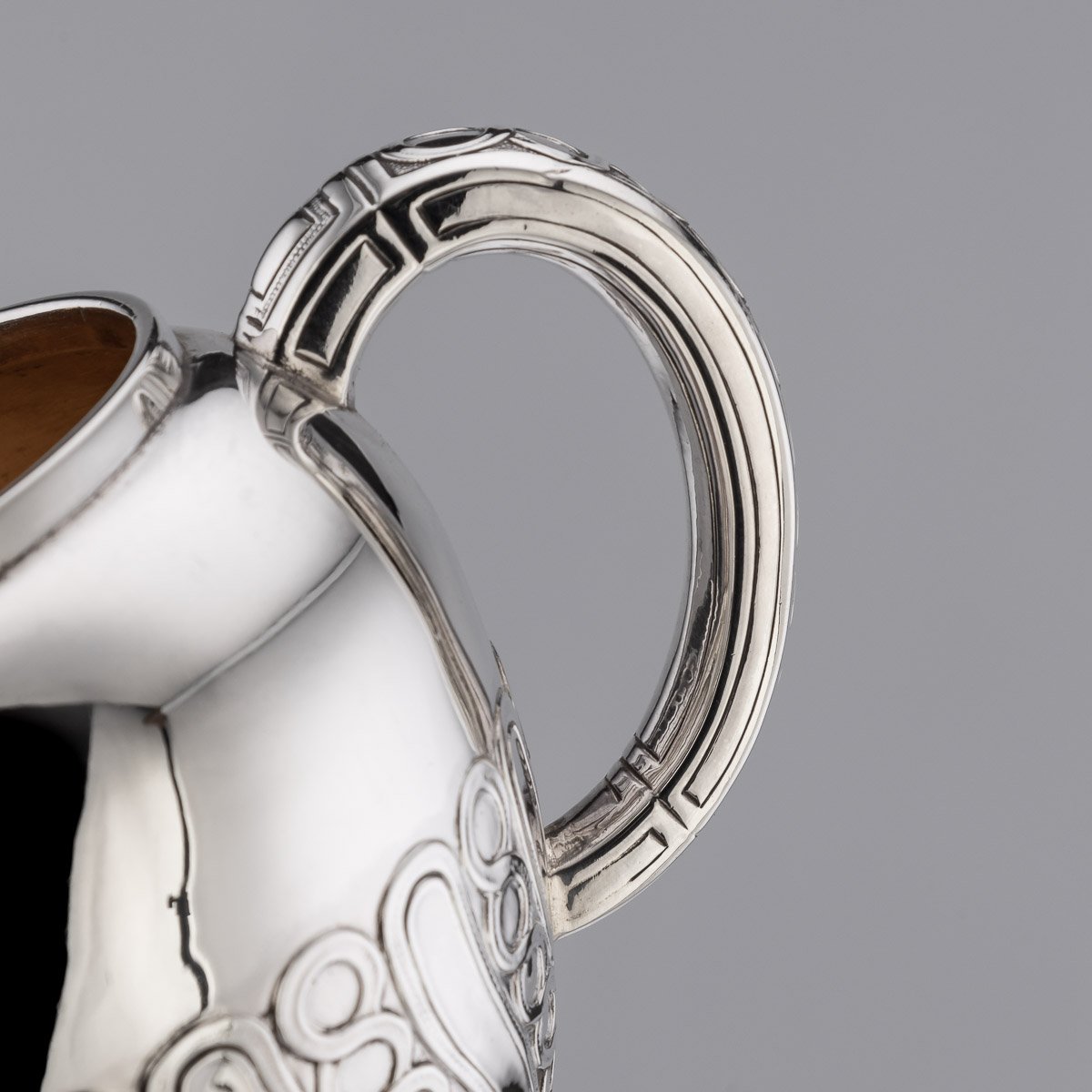 Image 15 of 40
Image 15 of 40

 Image 16 of 40
Image 16 of 40

 Image 17 of 40
Image 17 of 40

 Image 18 of 40
Image 18 of 40

 Image 19 of 40
Image 19 of 40

 Image 20 of 40
Image 20 of 40

 Image 21 of 40
Image 21 of 40

 Image 22 of 40
Image 22 of 40

 Image 23 of 40
Image 23 of 40

 Image 24 of 40
Image 24 of 40

 Image 25 of 40
Image 25 of 40

 Image 26 of 40
Image 26 of 40

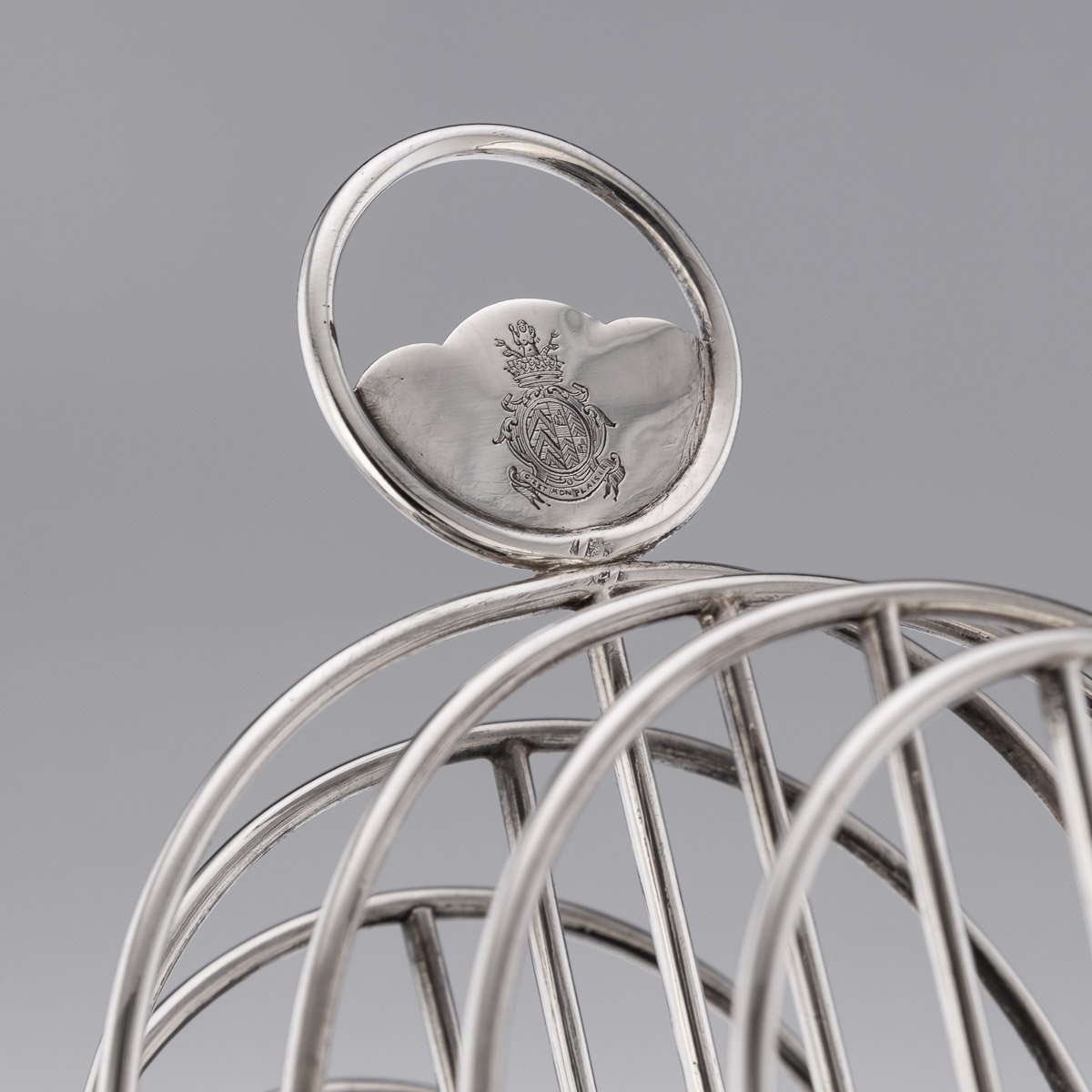 Image 27 of 40
Image 27 of 40

 Image 28 of 40
Image 28 of 40

 Image 29 of 40
Image 29 of 40

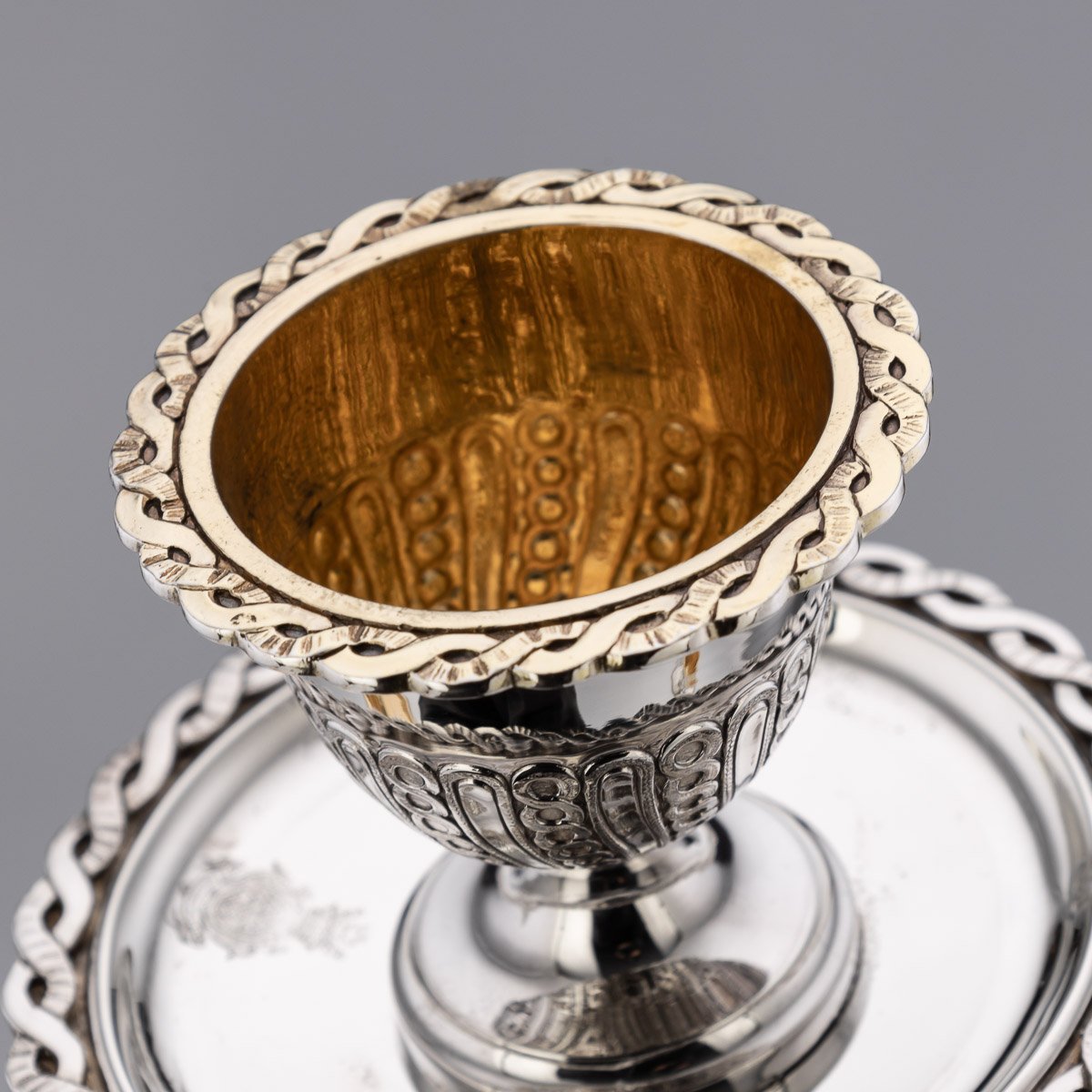 Image 30 of 40
Image 30 of 40

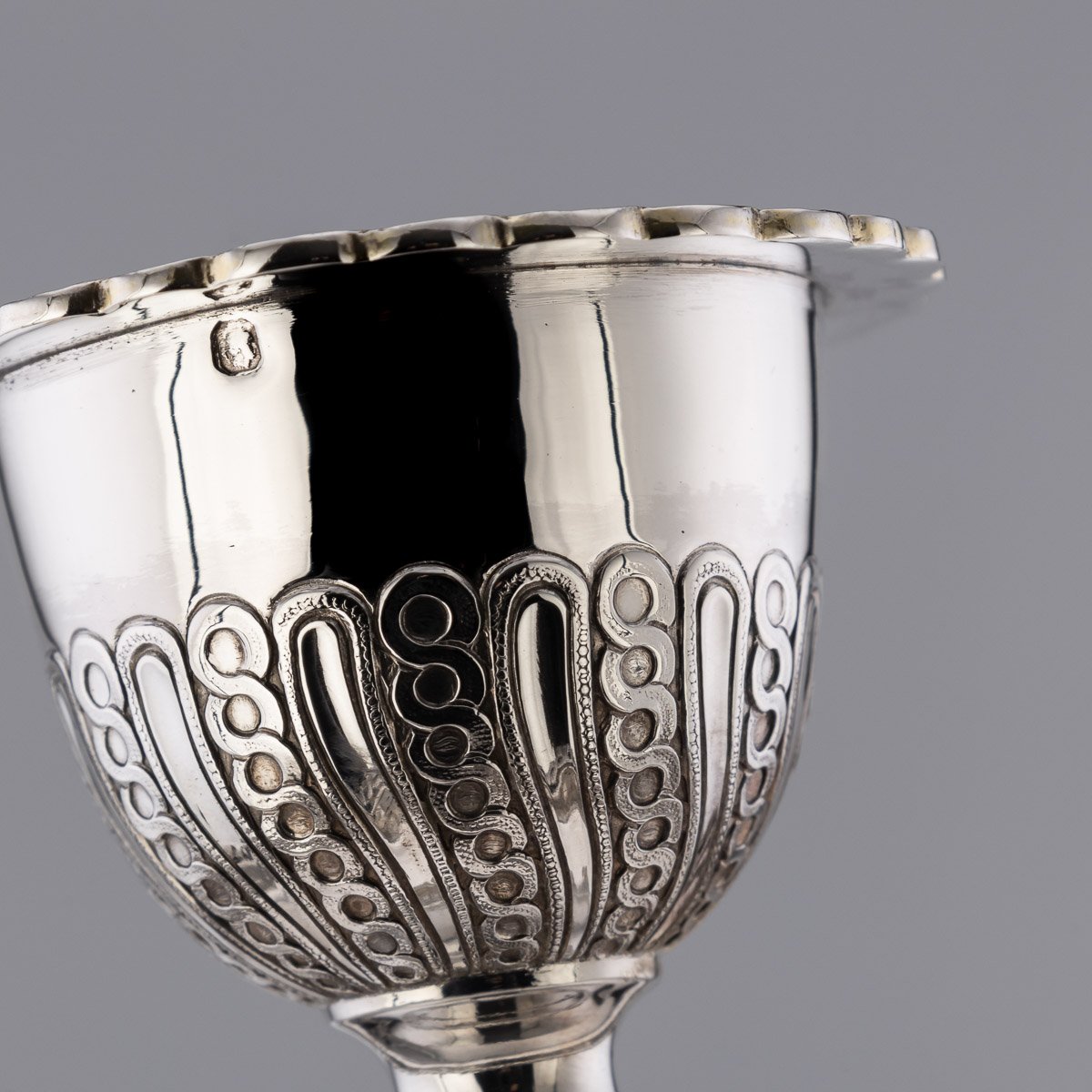 Image 31 of 40
Image 31 of 40

 Image 32 of 40
Image 32 of 40

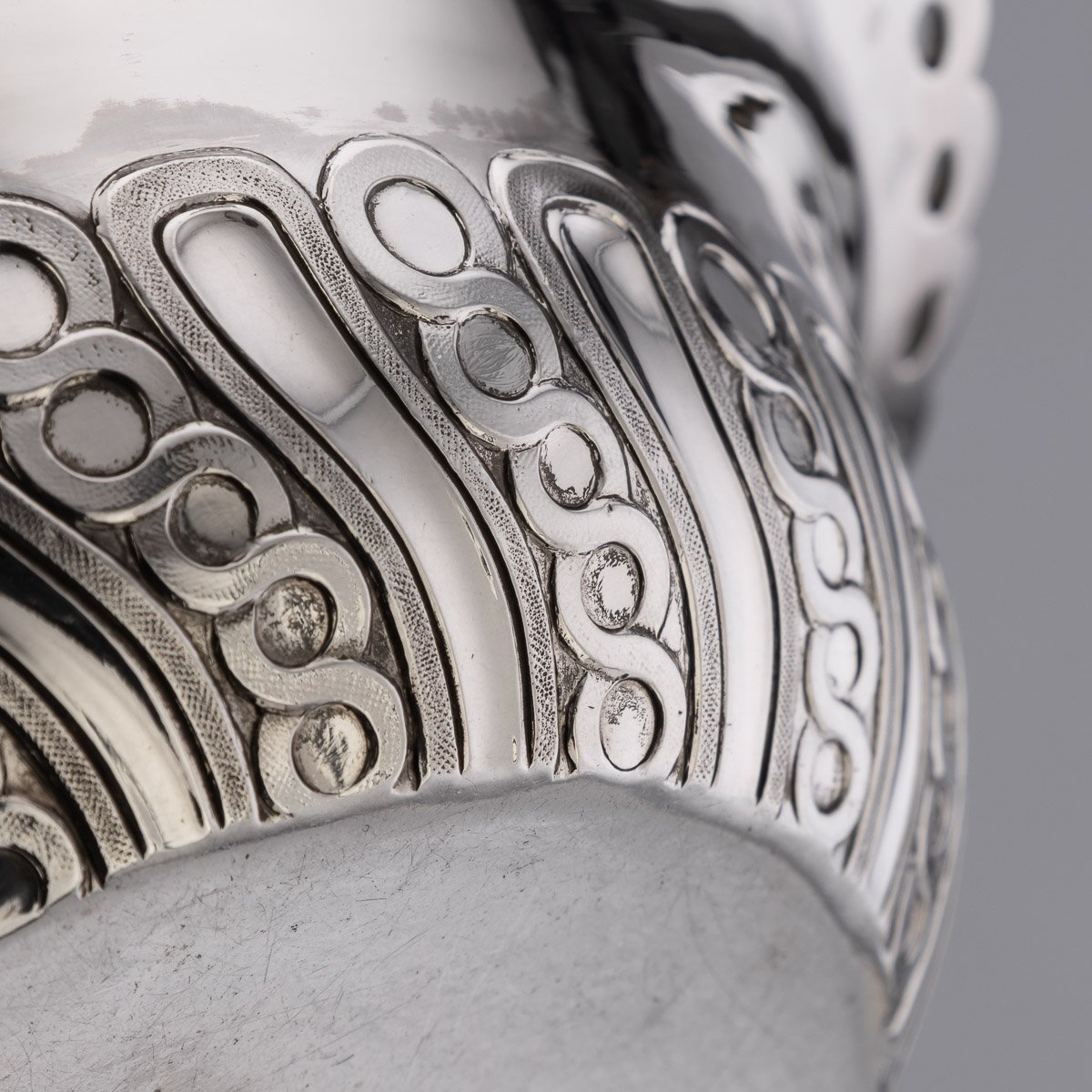 Image 33 of 40
Image 33 of 40

 Image 34 of 40
Image 34 of 40

 Image 35 of 40
Image 35 of 40

 Image 36 of 40
Image 36 of 40

 Image 37 of 40
Image 37 of 40

 Image 38 of 40
Image 38 of 40

 Image 39 of 40
Image 39 of 40

 Image 40 of 40
Image 40 of 40









































ANTIQUE 19thC FRENCH SOLID SILVER TEA SERVICE, ODIOT PARIS c.1880
19th Century French cased tea service, comprising: a water kettle, coffee pot, teapot, lidded sugar bowl, silver cream jug, oval dish, a bowl, sugar tongs, toast rack, two egg cups on stands and a double salt with a spoon.
Hallmarked French silver (950), Paris, Marks for Charles-Nicholas Odiot.
Reference Number: A7551
19th Century French cased tea service, comprising: a water kettle, coffee pot, teapot, lidded sugar bowl, silver cream jug, oval dish, a bowl, sugar tongs, toast rack, two egg cups on stands and a double salt with a spoon.
Hallmarked French silver (950), Paris, Marks for Charles-Nicholas Odiot.
Reference Number: A7551
19th Century French cased tea service, comprising: a water kettle, coffee pot, teapot, lidded sugar bowl, silver cream jug, oval dish, a bowl, sugar tongs, toast rack, two egg cups on stands and a double salt with a spoon.
Hallmarked French silver (950), Paris, Marks for Charles-Nicholas Odiot.
Reference Number: A7551
DESCRIPTION
Antique 19th Century French exceptional cased tea service, comprising: a water kettle, coffee pot, teapot, lidded sugar bowl, silver cream jug, oval dish, a bowl, sugar tongs, toast rack, two egg cups on stands and a double salt with a spoon. Decorated with a fluted decoration and inter-wining ribbon boarders, with plain spouts and c-shaped handles with insulators, richly parcel gilt inside.
Engraved with the La Rochefoucauld - Richelieu alliance coat of arm with the motto 'c'est mon plaisir' (my pleasure - in French). The title of Duke de La Rochefoucauld is a French peerage belonging to one of the most famous families of the French nobility, whose origins go back to lord Rochefoucauld in Charente in the 10th and 11th centuries (with official evidence of nobility in 1019). It became Rochefoucauld in the 13th century.
Hallmarked French silver (950 standard, mark used 1838-present), Paris, Marks for Charles-Nicholas Odiot (active 1827-1894), each base stamped "ODIOT PARIS".
La Maison Odiot, or House of Odiot was founded in 1690 by Jean-Baptiste Gaspard Odiot, fine silversmith during the reign of Louis XV.
However it was with his grandson, Jean Baptiste Claude Odiot (born in 1763) that the firm reached its peak of notoriety, receiving exceptional commissions from Napoleon’s court and the most important Royal families of the world.
In 1802 the firm participated at the International Exposition de l’Industrie in Paris winning the gold medal. Soon after, Odiot succeeded Henry Auguste as Napoleon’s official silversmith and was commissioned both the sceptre and the sword for his coronation in 1804, two massive dinner services for Napoleon’s mother and sister and one for the Emperor’s campaigns.
Jean Baptiste Claude is certainly the most iconic silversmith of the Empire style, influenced by the return of the classical Greek and Egyptian patterns: his pieces, often silver-gilt, are characterised by neoclassical forms and figural elements, often fixed with rivets and bolts, and not by the classic soldering method.
Jean Baptiste Claude retired in 1823, and his son Charles Nicholas took over the business. By 1825 he was already purveyor of silverware by appointment to His Majesty the King Louis-Philippe and to the Royal Family of Orleans and he started experimenting with electroplating, a technique he imported from England. Charles Nicolas excelled in the Rococo style, featuring shells and scroll motifs, flowers and richly ornate elements.
Charles Nicholas was succeeded by his son Gustave who worked for the firm from 1856 through 1906. He accepted the most majestic commission ever received by the company: 3000 pieces of solid gold flatware for the Viceroy of Egypt, Said Pacha.
The House of Odiot is still active nowadays, counting on an extraordinary long story and heritage and its pieces are displayed in the most important museums of the world such as the Musée du Louvre and the Metropolitan Museum in New York.
CONDITION
In Great Condition - No Damage.
SIZE
Box Size
Height: 19cm
Width: 58 x 43cm
Combined Silver Weight: 3825g





